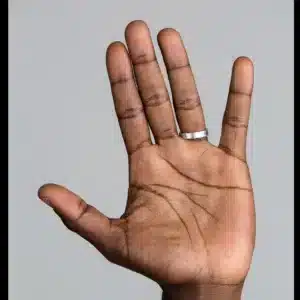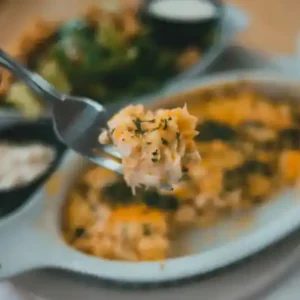I always thought the day Harold died would feel like closure.
Instead, it felt like a door cracking open.
The rain started just as they lowered my father-in-law’s casket into the ground. The grass turned slick with mud, my cheap black umbrella shook in the wind, and I kept one hand on my son’s shoulder so I wouldn’t slip.
I can’t say I was grieving Harold. We’d never liked each other, not really. He thought I’d married his son for money, and when things went bad, he convinced himself he’d been right. But even with all that history, standing there by his grave, I still didn’t expect him to reach out from beyond it.
A happy woman | Source: Pexels
Kiran stood rigid beside me, dark hair damp from the drizzle, suit jacket spotted with rain. Sixteen now. Taller than me. Quiet like his father. He hadn’t said much since we arrived, his eyes fixed on the casket as it disappeared into the earth.
We’d already been through one funeral together—his dad’s. Michael’s. The brain surgery that was supposed to save him took him instead, and everything that followed nearly sank us.
Advertisement
Back then, when Michael died, I inherited grief, debt, and a teenager I was determined not to burden with the truth of just how bad things really were. I worked two jobs, came home with my feet numb and my eyes burning, then sat in the car for five minutes just to pull myself together before walking into the house like everything was fine.
Kiran never complained. He never asked for more than we could afford. He just… grew up. Quietly.
I thought I knew everything there was to know about what Michael had left behind.
I was wrong.
We’d just turned away from the grave when Kiran tugged my sleeve.
“Mom,” he said quietly. “I have something for you. It’s from Dad.”
I turned to him, thinking I’d misheard. There was something in his eyes I couldn’t place—nervous, but steady. Like he’d been carrying this moment around for years.
“What do you mean, from Dad?” I asked.
He reached into his pocket and pulled out a small, rusty key. Old and scarred, the kind you’d expect to find in a forgotten drawer.
A small rusty key | Source: Unsplash
“He gave it to me before the surgery,” Kiran said. “He told me to keep it safe and only use it after Grandpa died. He said we’d need to go to his house.”
Harold’s house.
The one he’d never let me step foot in again.
In an instant, I was back in that hospital room six years earlier. Michael pale and fragile, monitors beeping softly around him. The doctors had said it was a coin flip—fifty-fifty. Surgery or a slow, certain death. We chose the coin flip.
We lost.
After he died, everything collapsed. The medical bills ate what little we had. The savings we’d carefully built vanished into hospital accounts. Harold didn’t offer help. He didn’t even offer sympathy. Instead, he clung to an old accusation.
Years earlier, after his wife died, $200,000 in cash disappeared from their house. Money she had saved. Money he assumed we’d stolen because it went missing not long after we’d visited. No amount of denying it mattered. In his mind, it was settled: I’d taken it, and by extension, his son had betrayed him.
From that day on, Harold banned us from his house.
Well—banned me and Michael.
He still wanted Kiran.
Every couple of weeks, he’d call with no greeting, no small talk—just: “Send the boy.” He and my son built some strange quiet bond in a house I was never allowed to enter.
Now Harold was gone. And my son was standing in the rain, holding a key Michael had trusted him with.
“Why didn’t you tell me?” I asked.
“Because I promised Dad I wouldn’t,” Kiran said simply. “He said it wasn’t the right time. Not until Grandpa was gone.”
There were a dozen questions I wanted to ask, but only one thing to do.
“We’re going,” I said. “Now.”
Advertisement
Harold’s house looked exactly as I remembered it: a tired two-story with peeling paint and a cracked front step. The curtains were closed like always. For years, I’d only seen the place from the driveway, handing my son over like some sort of visitation exchange.
Now I was walking up the porch steps as if I belonged there.
Kiran went ahead. Without hesitation, he reached under the left side of the railing, pried away a flat black magnet, and pulled out a small silver key.
I stared at him. “How did you know that was there?”
“He always hid it in the same spot,” he said with a shrug, like that was nothing.
Inside, the house smelled like dust and old wood and a life lived in the same routine for too long. There were half-empty glasses of water, a recliner with a blanket folded over the back, a newspaper from two weeks ago lying open on the coffee table. It was eerie, like the house hadn’t realized Harold wasn’t coming back.
And underneath all of that was something else. A… guarded feeling. Like the walls themselves were holding their breath.
“It doesn’t look like a door key,” I murmured, staring at the rusted key in my palm.
“It’s not,” Kiran said. “Dad said it was for something in the basement. Behind the wardrobe.”
I hadn’t even known Harold had a wardrobe in his basement.
“Dad told you that?” I asked softly.
“Yeah. He said Grandpa would never let you near this house again, but he’d always let me in. He said if… if things went wrong, I’d have to be the one to bring you here.”
Advertisement
The basement door creaked when Kiran opened it. We walked down into the dim light, the single bulb casting a weak orange glow over boxes, tools, and forgotten furniture. The air was cold and thick with dust.
And there it was.
A tall, wooden wardrobe shoved against the far wall. Out of place, like someone had dragged it down there in a hurry and left it as a barricade.
“It’s behind this,” Kiran said.
We pushed. The wardrobe scraped stubbornly across the concrete floor, revealing a shallow recess in the wall—and in that recess, a small old safe.
Rusted steel, keyhole dead center.
My fingers shook as I fit the key into the lock.
It turned with a soft, stubborn click.
I opened the door.
A pouch lay inside, black cloth tied with string. I pulled it out, set it on an overturned crate, and loosened the knot.
Bundles of cash stared back at me.
Neat stacks of $100 bills, banded tight. I flipped through a couple, my brain scrambling to do the math.
Two hundred thousand. Maybe more.
Kiran let out a breath that was almost a laugh. “Whoa.”
A shocked boy | Source: Midjourney
“That’s… that’s the money,” I whispered. “The money your grandfather thought we stole.”
My hands found something else in the pouch—a small velvet jewelry box. I opened it and felt my throat close.
Inside lay a delicate gold bracelet.
Mine.
I’d pawned it years ago when the bills were bigger than my pride. I’d walked into a shop, taken the cash they offered, and walked out trying not to cry.
“What’s it doing here?” Kiran asked.
“I sold this,” I said. “To pay rent.”
He glanced back at the safe. “Then Dad must have bought it back.”
It took me a second to find my voice. “Why would he…?”
“Because he wasn’t done taking care of you,” Kiran said quietly.
There was one more thing in the pouch: a thick yellowed envelope with my name on it.
“Jen,” the letter started. “If you’re reading this, I’m gone. And Harold finally is, too.”
I felt like the floor dropped an inch under my feet. It was Michael’s handwriting. His voice in black ink.
“I’m sorry,” the letter continued. “I’m sorry for leaving you with so much. That was never the plan.”
My vision blurred, but I kept reading.
“You always wondered why I stayed in contact with Mom even when I barely spoke to Dad. The truth is, I didn’t trust him. But I trusted her. When she told me he was burning through his money, I knew there had to be something left somewhere. Turned out, I was right.”
He explained it all in a careful, painful unraveling.
Harold had been reckless with money for years. His wife—Michael’s mother—had been quietly saving in an account he didn’t know about. After she died, she started pulling cash out in small amounts and hiding it in a shoebox under their bed.
One day, Harold found the box.
And the next time we visited, the money “disappeared.”
He’d assumed we’d taken it.
Michael wrote about the fight that followed. How his mother pulled him aside afterward, eyes full of regret, and confessed that she’d moved the cash to a safe in the basement, behind the wardrobe, where Harold would never think to look.
“She let him believe the lie,” Michael wrote. “She let him think you and I took it. Because if she’d told him it was still there, he would’ve wasted it in a year. This way, she made sure it would be here. For us. For you. For Kiran.”
A woman holding a box on a bed | Source: Pexels
His mother had sacrificed our relationship with her for the sake of protecting that money from her own husband.
“She wanted to tell you,” the letter said. “I wanted to tell you. But as long as Dad was alive, there was too much risk. If you came into the house, if he saw you near the basement, he’d change the locks, tear the place apart, or blow through the cash just out of spite. So we waited. This was the only way we knew how to make sure you and Kiran would have something if I didn’t make it.”
My hands shook so hard the paper rustled.
Beside me, Kiran was silent, eyes glued to the words.
“She knew he’d never close the door on his grandson,” Michael wrote. “So I asked her to let Kiran keep coming. We planned this together—quietly. The key, the safe, this letter. I hate that you had to be hurt to make it work. But if you’re reading this now, then at least one thing went right.”
I pressed the letter to my chest for a moment, eyes squeezed shut.
Kiran’s voice broke the silence. “They did all that for us?”
I nodded. “For us. For you.”
He looked at the money again. “What are we going to do with it?”
I let out a breath that was half laugh, half sob. “First, we’re getting out from under every last piece of debt. Then we fix the car. Then… then we figure out what you want next. College. Life. All the things I’ve been telling you we ‘might not be able to afford.’”
“Mom,” he said softly, “you think there’s enough for that?”
“There’s enough,” I said. “There’s enough to give you choices we never had.”
Advertisement
Tucked behind Michael’s letter was another envelope with Kiran’s name on it. I handed it to him and watched as he opened it carefully.
“Hey, buddy,” the letter began. “If you’re taller than me now, I’m officially jealous.”
Kiran let out a small snort.
Michael’s note to our son was shorter, but just as full of him. Little bits of advice: “Never lie to get out of trouble—it always comes back worse.” “Learn to cook one fancy meal and one cheap one.” “Call your mom, even if you think she’s busy.”
And near the end:
“I’m trusting you with something big, because I know you can handle it. I gave you that key because you’ve always been the strongest one in the room, even when you didn’t realize it. When the time comes, take care of her for me, okay? The way she took care of both of us.”
Kiran folded the letter slowly, his jaw tight, eyes shining.
We put everything back into the pouch, except for the letters. Those we tucked safely away.
Upstairs, the house looked less menacing. Just old. Just tired. Just done keeping secrets.
Over the next week, we met with the lawyer, settled Harold’s estate, and quietly emptied the safe through the bank. There wasn’t much else: some old furniture, a coin collection Kiran wanted, a model train set he and his grandfather used to assemble on rainy afternoons.
The rest could go. We’d already taken what mattered.
A happy woman packing boxes | Source: Pexels
Once the debts were gone, there was still enough left to breathe. Really breathe. I sat at our kitchen table one evening with a clear balance sheet for the first time in years and a stack of college brochures for Kiran.
“Do you still want to tour Stanford?” I asked when he came in and tossed his backpack onto the couch.
He hesitated just a second. “Yeah. But only if you come with me.”
I smiled. “I’m not letting you go charm admissions officers without me.”
That night, as we dragged suitcases out of the closet and started talking flights and campus tours, I thought of Michael again. Of his mother. Of all the quiet, painful choices they’d made to protect something he wasn’t even sure we’d live long enough to see.
He hadn’t just left us with hospital bills and empty rooms. He’d left us with a plan. A path, even if we didn’t find it until we’d already learned how to walk alone.
All of it hinged on a boy who kept a promise for six years and a rusty key he never once lost.
That small piece of metal hadn’t just opened a safe.
It unlocked a future that, for a very long time, I’d stopped letting myself believe we were still allowed to have.





